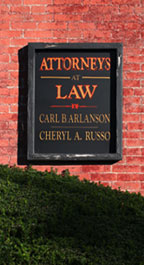ARTICLES > Back
The Power of Attorney
Black’s Law Dictionary defines “Power of Attorney” as “an instrument authorizing another to act as one’s agent or attorney”. The Instrument must be in writing and may be either a “Special” Power of Attorney, that is a power given to a person with specific authorizations to do certain acts or a “General” Power of Attorney, which authorizes the appointed agent to perform any and all acts.
Formerly, Powers of Attorney were not widely used because they were not often recognized or honored due to revocation upon death or incompetency of the person appointing the agent (or “attorney-in-fact”). In other words, if one person gave another person the power to cash his or her checks, the bank requested to honor the Power of Attorney by cashing the checks at the request of the attorney-in-fact had the risk that the person granting the Power of Attorney had deceased or had become incompetent thus invalidating the Power of Attorney. One can imagine the hesitancy of persons and institutions in accepting a Power of Attorney, not knowing whether the person granting the power was still alive or competent.
Fortunately in 1981 Massachusetts enacted Chapter 201B of the Massachusetts General Laws known as the “Uniform Durable Power of Attorney Act” which, among other things, stated that a disability or incapacity of the principal (person granting the Power of Attorney) who has previously executed a written Durable Power of Attorney shall not revoke or terminate the agency. In addition, the Act states that the death of a principal shall not revoke or terminate the agency with the actual knowledge of the death of the principal and so long as the parties are acting in good faith.
The Durable Power of Attorney is an extremely useful tool because a person can grant another person very broad powers to deal with his or her financial affairs. Among the type of powers which can be granted are the ability to make deposits and withdrawals from banking institutions and brokerage firms, to sign or endorse checks or promissory notes, to sell, transfer and deliver stocks, bonds and other evidence in property, and to generally do any and all banking business, to sell real estate or personal property, borrow money, sign deeds and bills of sale, execute tax returns, make application for benefits (State and Federal), vote proxies at corporate meetings, borrow money, prosecute and defend claims, employ attorneys and accountants to assist in handling the financial affairs. Also a Power of Attorney can include the nomination of a Conservator or a Guardian should one require formal legal lifetime incompetency proceedings in the Probate Court.
Perhaps needless to say, the person who is granted the power must be one in whom the party granting the power has a great deal of trust and confidence. In addition, the person given the power ought to have some ability to deal with the matters to which the power relates, i.e. familiarity with financial and business affairs is most useful for a person granted the power of attorney.
Often times a spouse will grant the his/her spouse a General Power of Attorney with Durable Powers and the other spouse will reciprocate by granting the same. For several reasons this is often good practice, as either may be out of town or unavailable when a particular business transaction is required, or either spouse may become subsequently disabled, incapacitated or incompetent. The time to have the Power of Attorney executed clearly must be prior to the disability, incapacity, non-availability or incompetency of the person granting the power. As our society becomes more mobile and medical science extends the longevity of our population, the use of the “Power of Attorney” becomes more frequent.
Often an older single person may wish to grant the power to a trusted and capable child or friend for many of the same reasons a spouse grants the power to the other. The idea is to have a trusted and capable relative or friend available to handle the affairs of the granting person before the non-availability, incapacity or incompetency occurs.
Accordingly, it is useful to be aware that one may utilize a Power of Attorney for special purposes or for general purposes and so long as the Power of Attorney is durable in nature, it is most likely to be honored by those who are asked to act in reliance thereon as the power endures subsequent disability or incapacity. It is not necessarily the only disability planning one should do, nor is it valid after death of the principal.
> Back
|


